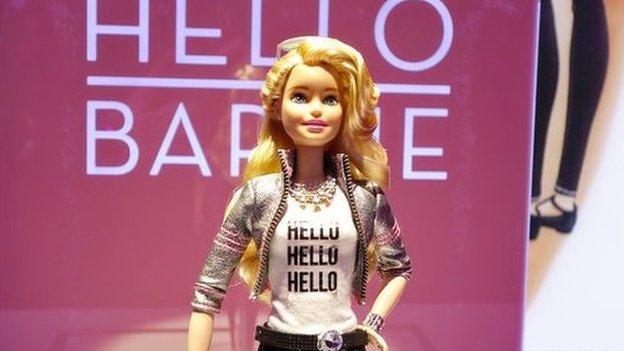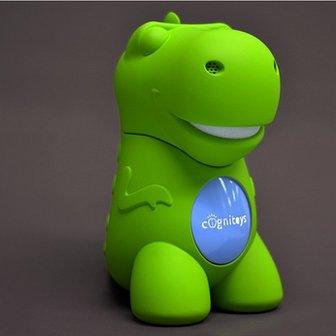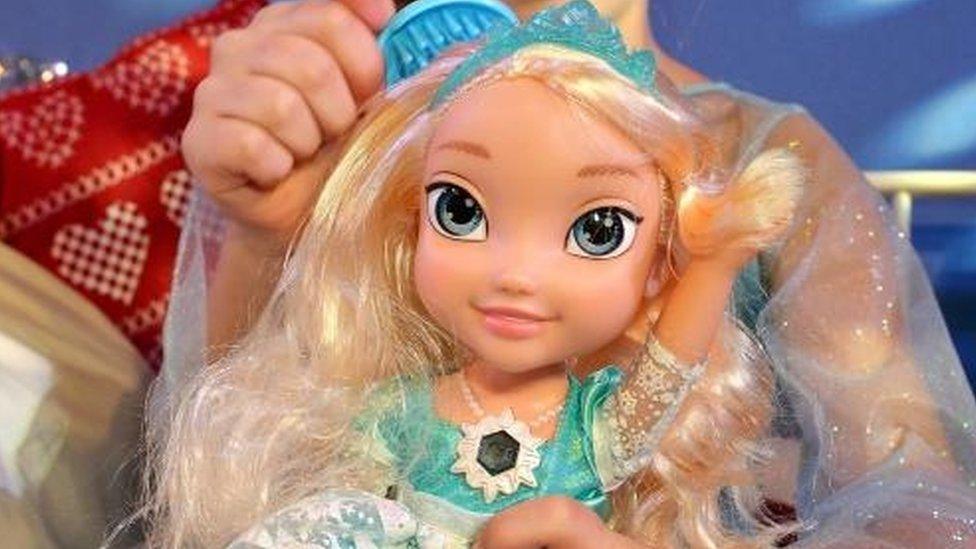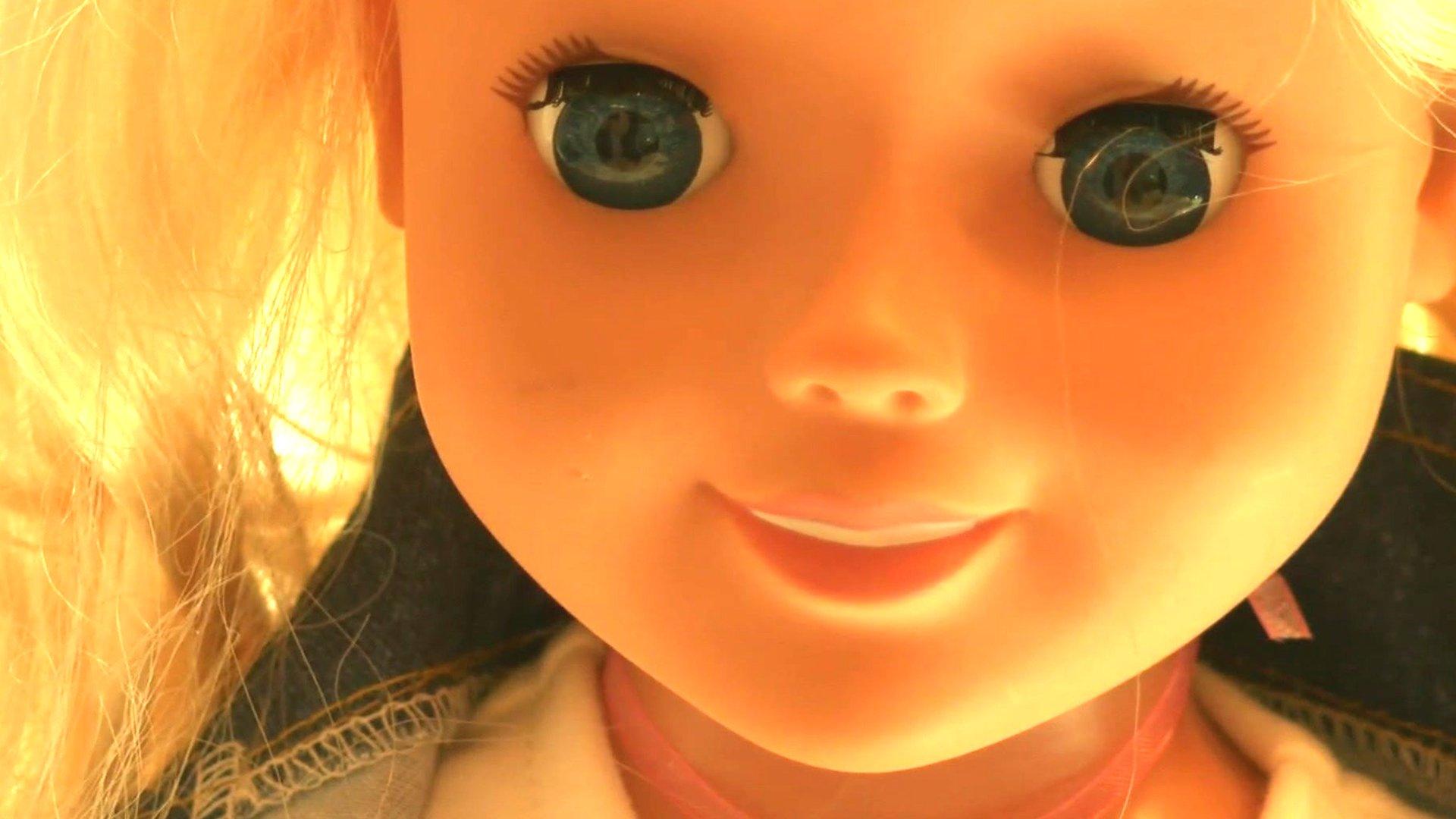Barbie doll will be internet connected to chat to kids
- Published

The Hello Barbie will remember what children have said and mention it at a later date
Barbie is having a digital makeover, with the release of an internet-connected version of the iconic doll.
Toy maker Mattel is partnering with US start-up ToyTalk to develop Hello Barbie, which will have two-way conversations with children.
The Barbie will use a speech-recognition platform developed by ToyTalk.
A prototype of the doll was at the New York Toy Fair on 14 February, where a glut of smart toys were on display.
"The number one request we hear from girls around the world is that they want to have a conversation with Barbie. Now, for the first time ever, Barbie can have a two-way conversation," said a spokeswoman for Mattel.
The Hello Barbie will be able to play interactive games and tell stories and jokes.

A dinosaur, connected to one of the world's cleverest machines, is also being developed
It will also listen to the child's conversation and adapt to it over time - so, for instance, if a child mentions that they like to dance, the doll may refer to this in a future chat.
The doll requires a wi-fi connection and can provide an hour's worth of playtime when fully charged.
A microphone, speaker and two tricolour LEDs will be embedded in the doll's necklace, while rechargeable batteries in its legs can be connected to an external wall-mounted charger.
The doll is expected to sell for about $74.99 (£49). No release date has yet been confirmed.
Doll hack
Increasingly, the toy market is becoming saturated with smart versions of old favourites.
Back in November, the Vivid Toy group released Cayla, a doll that uses speech-recognition and Google's translation tools.
In January, security researcher Ken Munro discovered a vulnerability in its software, which allowed for it to be hacked to say things that might not be suitable for children.
A start-up, now live on Kickstarter, is developing a line of smart toys powered by the IBM-developed supercomputer Watson.
The first range from Elemental Path will be a smart dinosaur that can chat with children, tell them jokes and answer a range of questions.
"Toys have to keep up with the expectations of children," said Natasha Crookes, director of communications for the British Toy and Hobby Association.
Rory Cellan-Jones sees how Cayla, a talking child's doll, can be hacked to say any number of offensive things.
"As long as children are protected from being able to access anything online, there is no harm in internet-connected toys.
"Companies take a lot of care making sure that there are white lists and black lists for content."
Some critics have questioned whether internet-connected toys endanger traditional, imaginative play, but Ms Crookes is not convinced.
"Such toys can enhance traditional play," she says.
"Some of the time, children will play with the toy in internet-connected mode, and some of the time they will play with them in the traditional way, using their imagination," she said.
- Published5 November 2014

- Published30 January 2015
